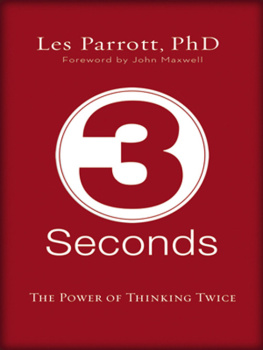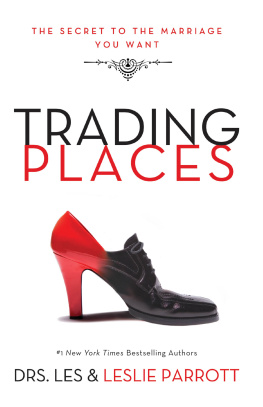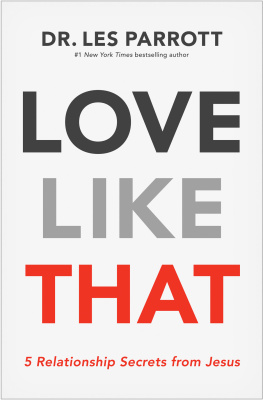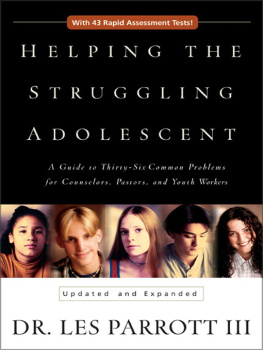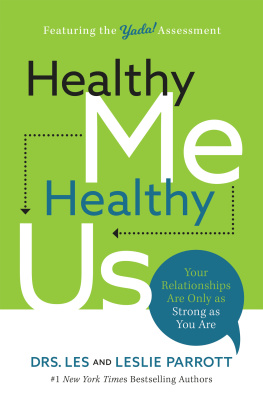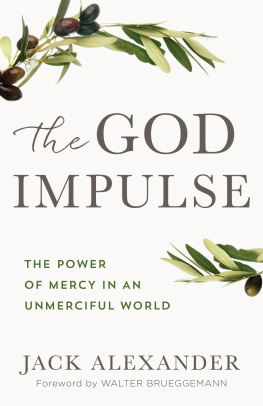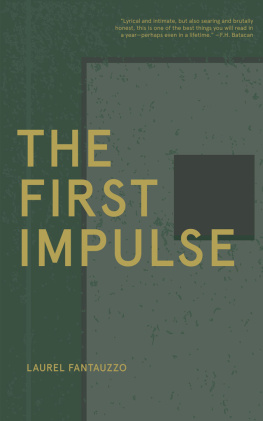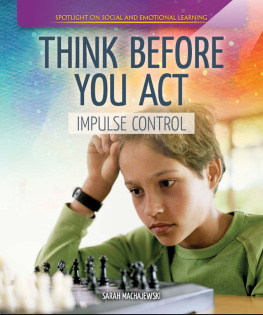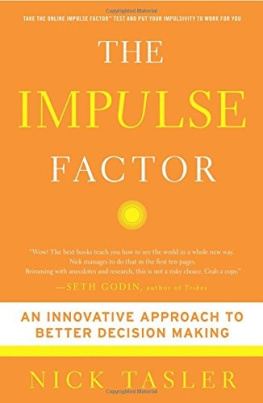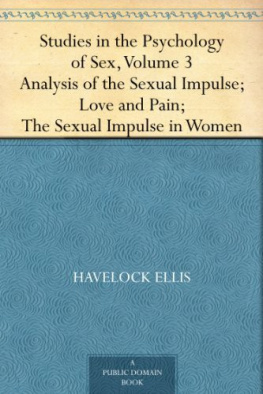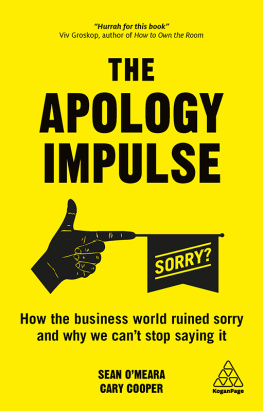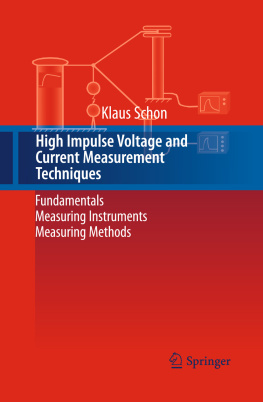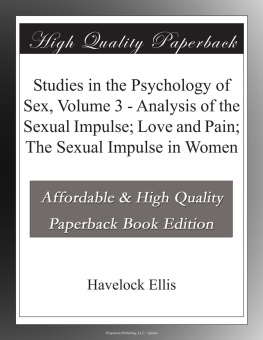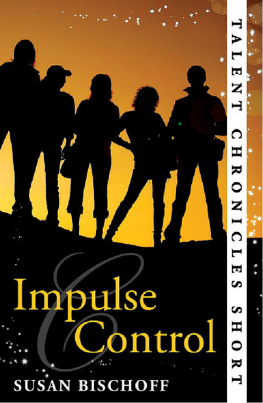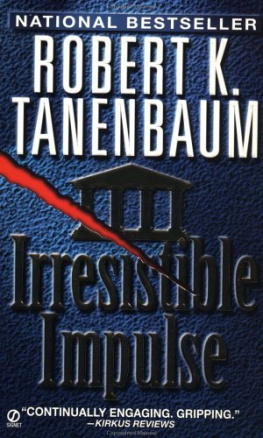


3 Seconds
ePub Format
Copyright 2007 by The Foundation for Healthy Relationships
This title is also available as a Zondervan audio product.
Visit www.zondervan.com/audiopages for more information.
Requests for information should be addressed to:
Zondervan, Grand Rapids, Michigan 49530
ISBN: 0-310-30905-0
All Scripture quotations, unless otherwise indicated, are taken from the Holy Bible: New International Version. NIV. Copyright 1973, 1978, 1984 by International Bible Society. Used by permission of Zondervan. All rights reserved.
Scripture quotations marked NASB are taken from the New American Standard Bible. Copyright 1960, 1962, 1963, 1968, 1971, 1972, 1973, 1975, 1977, 1995 by The Lockman Foundation. Used by permission.
Scripture quotations marked KJV are taken from the King James Version.
Internet addresses (websites, blogs, etc.) and telephone numbers printed in this book are offered as a resource to you. These are not intended in any way to be or imply an endorsement on the part of Zondervan, nor do we vouch for the content of these sites and numbers for the life of this book.
All rights reserved. No part of this publication may be reproduced, stored in a retrieval system, or transmitted in any form or by any meanselectronic, mechanical, photocopy, recording, or any otherexcept for brief quotations in printed reviews, without the prior permission of the publisher.
Published in association with Yates & Yates, LLP, Attorneys and Counselors, Orange, California, and Result Source, Inc., San Diego, California.
Interior design by Beth Shagene
Dedicated to Kevin Small
A man who has taught me more than he'll ever know
about how to embrace a good challenge
Human freedom involves our capacity to pause, to choose the one response toward which we wish to throw our weight.
Rollo May
Foreword
by John C. Maxwell
I read the first chapter of this book shortly after Les wrote it. In fact, I read it before anyone elseincluding his editor.
I was in my study when Les phoned me from his home in Seattle. John, he said, I want to share an idea with you that I've never heard anyone talk about. Les immediately had my attention. He is one of the sharpest thinkers I know, and his training as a psychologist makes him especially insightful. The more I've studied what separates those who excel from those who don't, he said, the more I've come to believe that it's often a matter of a mere three seconds.
Les has a way of getting nearly anyone to sit on the edge of their seat as he speaksI've seen him do it in auditoriums before thousands. And on this day, he certainly had me intrigued. Three seconds? I asked slowly, knowing he was intentionally piquing my interest.
That's it. Just three seconds. Studies have shown that it's the amount of time it takes to redirect a negative impulse in the human brain, Les said. Not only that, he continued, I've found a half dozen common impulses that almost always lead to mediocrityunless we pause, and give them a second thought.
I was hooked. Les began to tell me about these self-sabotaging impulses, but I stopped him in his tracks: Les, I can tell by the way you're talking that you're writing another book, and I want to see it. Les has written as many books as some people have read. I've got a shelf full of them in my own library, and I often give copies of his books to my kids, my friends, and my staff.
That afternoon Les emailed me the first chapter of the book you're now holding, and I soon saw that he was on to something significant. Very significant! I quickly became a believer in the power of thinking twice. And you will too. If you internalize Les's message in this book, if you study his strategy for overcoming six of the most common negative impulses we experience, you will retrain your brain and move to a whole new level of success.
In plain language, Dr. Parrott shows you how a momentary pause, just three seconds, can elevate your entire life. I can't imagine anyone who would not find this book to be invaluable. If you're a leader, you should buy it by the case and give it to your staff. Anyone and everyone who wants to unleash their inner resources and obtain a better way of living needs to read this book.
The Power
of Thinking Twice
Let the first impulse pass,
wait for the second.
Baltasar Gracian
Three seconds separate those who give it their all from those who don't give it a thoughtliterally. Three seconds. This brief buffer is all that stands between those who settle for whatever and those who settle for nothing less than whatever it takes.
How could such a short span of time make such a big difference? It comes down to six predictable impulses that most of us automatically accept without a second thought. Quite literally, we don't consider alternatives to these impulses because they've become unconscious habits embedded into our brain. The routine acceptance of any one of these six common impulses involuntarily eliminates the possibility of greatness from our lives. Without knowing it, we hem ourselves into a life of diminished returns, all because we don't give the first impulse a second thought.
If, on the other hand, we were to give any one of these six common impulses a momentary pause, just three seconds of deliberation, we would soon see that another impulse emerges. And it is this second impulse that puts us on a higher road. It is this second impulse that reveals our freedom to excelto move from whatever to whatever it takes.
Grant us a brief delay; impulse in everything is but a worthless servant.
Caecilius Statius
People who are willing to do whatever it takes build better teams, win more respect, and achieve bigger results because of this quality. Their mind-set defines everything they do and every encounter they have. Are they merely lucky in life? Are they blessed with a way of thinking that spells success without effort? Not on your life.
This alluring and invisible quality is not inherited as much as it is honed. It's a captivating spirit that can be taught and caught. For too long, it has been bridled by the false impression that you either have it or you don't. This book is about to change that thought.
The First Instinct Fallacy
Renowned psychologist Rollo May said, Human freedom involves our capacity to pause, to choose the one response toward which we wish to throw our weight. This freedom to choose the one response, the one that can take your life to a new level, is what I intend to help you experience.
As a psychologist and college professor, I'm familiar with the advice to go with your first impulse. If you've ever taken a multiple-choice exam like the SAT, you've probably been told not to change your first choice, even if, on second thought, you think an alternative answer is probably correct. The common wisdom here is that your initial instincts are the best. But research actually shows this isn't a good strategy. In fact, thirty-three studies over seventy years suggest that sticking with your first instinct is not a smart approach. Researchers found that when test-takers second-guess and change their answers, it's most often from incorrect to correct, improving their test scores. Researchers at the University of Illinois call it the first instinct fallacy and it continues to live on in spite of an abundance of contradictory evidence.
If your hunch proves a good one, you were inspired; if it proves bad, you are guilty of yielding to thoughtless impulse.
Next page
